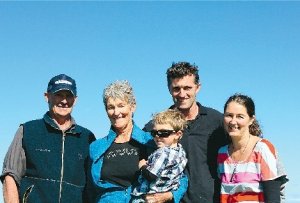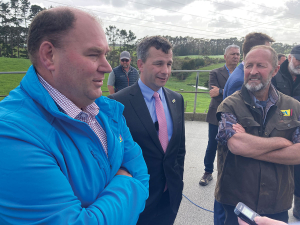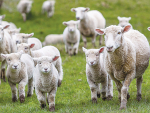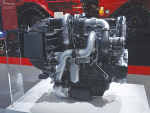Both farms, southwest of Mangonui in the Far North, are owned by Clive’s parents Murray and Liz Walden.
When the family took on the property in 2005 it was all one dairy farm which frequently had compliance issues.
The Walden’s initially converted it to high intensity beef and ran as many as 2000 two-year-old bulls. But in 2008 they decided to go back into dairying after getting poor prices for stock even though they were producing top animals.
To save more money for the farm they bought a herd of dried-off empty cows from Waikato at $800/head compared to the 2008 average of $2000-3000/head of in-calf stock.
They lengthened the herringbone shed, increased the yard area and upgraded the effluent system.
Clive says investing in a better effluent system was a big part of the dairy conversion process as there had been so many issues with compliance previously.
They opted for a gravity fed, four pond treatment system, digging anaerobic and aerobic ponds while using a smaller, existing pond system for wastewater. The area immediately below the pond was also developed into wetland to catch any remaining run-off nutrients.
A pond system was chosen because of the limitation on days suitable for effluent disposal to the land. They have capacity for 120 days effluent but do all they can to cut down the material going into the system, including scraping down yards and feed pads and setting up the shed so cows don’t turn any right angles. “The more water you put into a system the faster it goes through… so we want to minimise that as much as we can,” says Clive.
He believes effluent isn’t as much a problem in the north as is pugging and erosion, both of which have absorbed his time and energies to fix.
Longer rounds than the norm, and careful monitoring of pasture, prevent cows damaging paddocks. Bush and waterways are fenced off.
Much of the extra fencing work was done while reconverting, but it had started under the beef system to get more out of pastures.
“I found as soon as you tried to put any pressure on the paddock the bulls would just go through the creek and get into the other paddock,” recalls Clive.
Northland Regional Council helped finance fencing the river, but doing so meant the Waldens had the extra cost of installing troughs where streams had previously been the stock’s water source. This, plus the costs of a new shed, effluent system and improved water system, meant a large initial cost.
Murray says that wouldn’t have been possible without the ongoing bull farming operation on the rear section of the farm.
“It was important to keep the beef operation running cashflow wise… It also gave us options.”
The conversion was anything but smooth and they had to learn some hard lessons on calving dates.
Over the past two seasons the milking platform’s done about 919kgMS/ha in an area that averages 600kgMS/ha. Murray says he never doubted he would reach that figure.

















